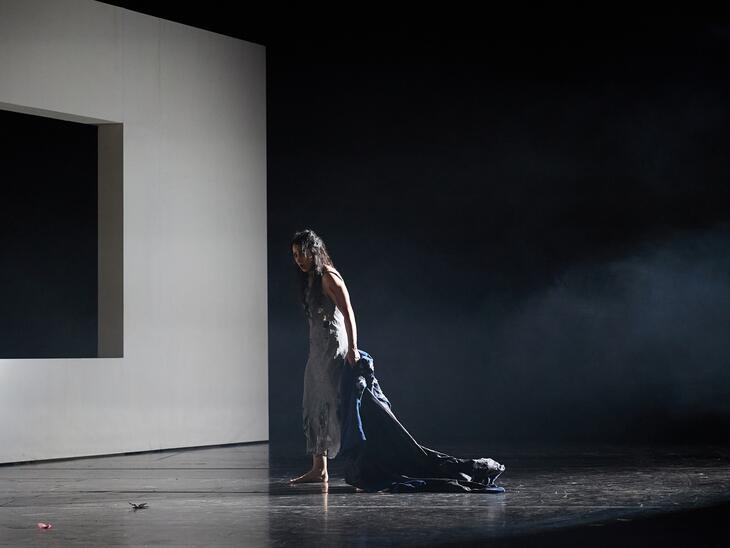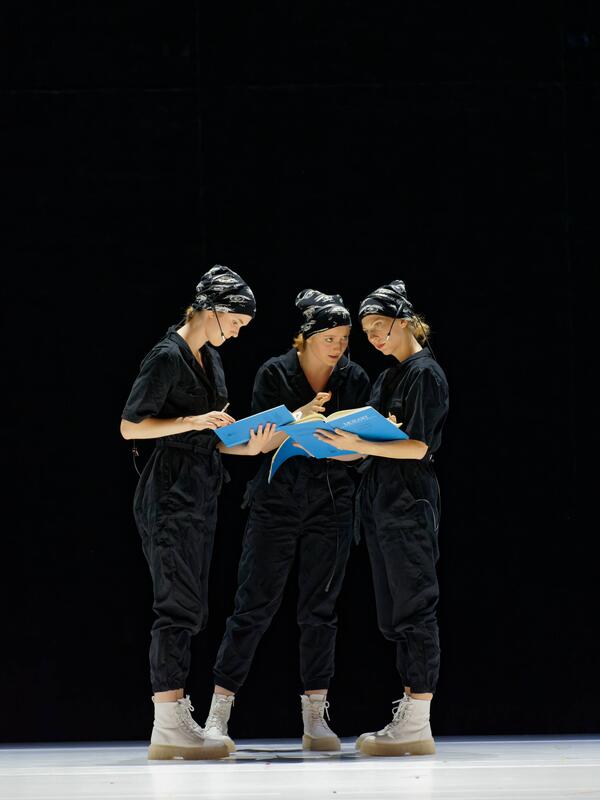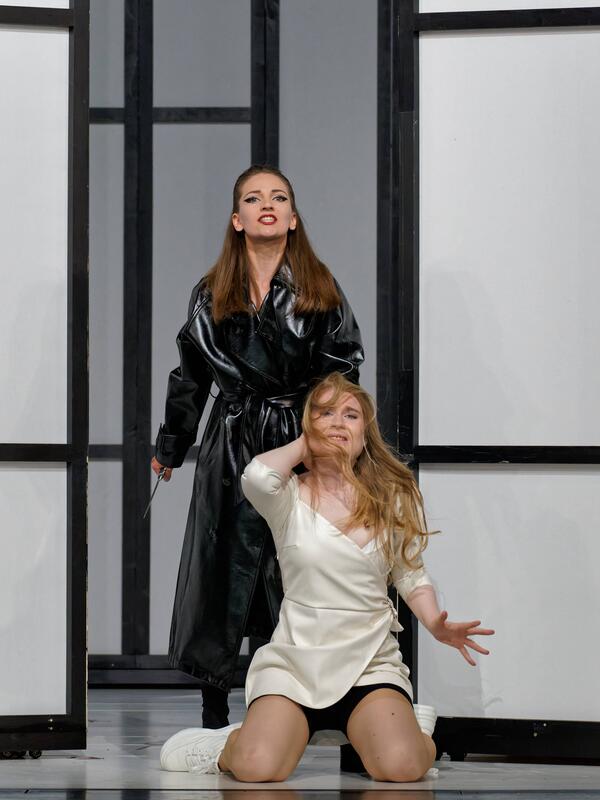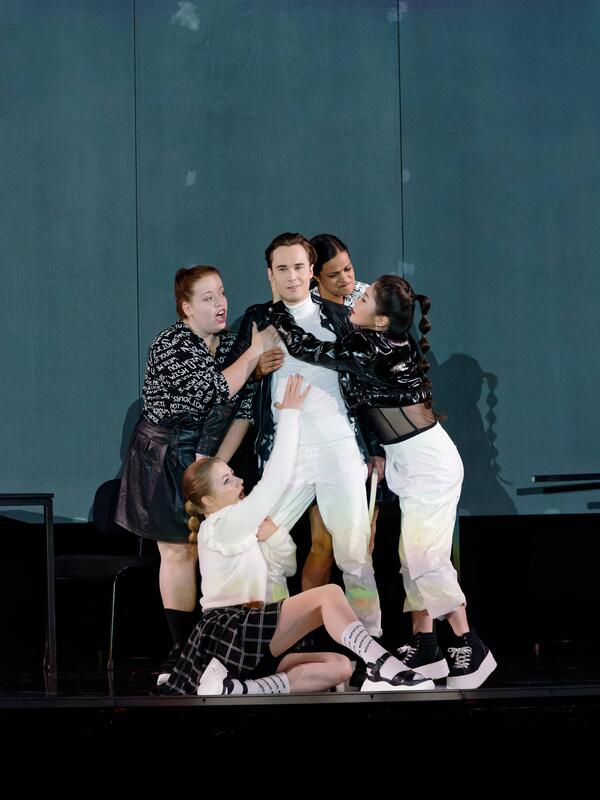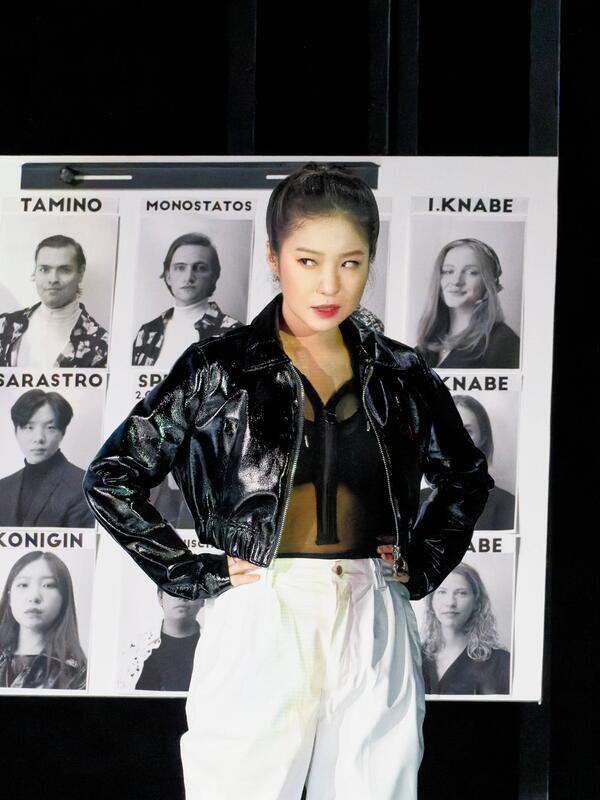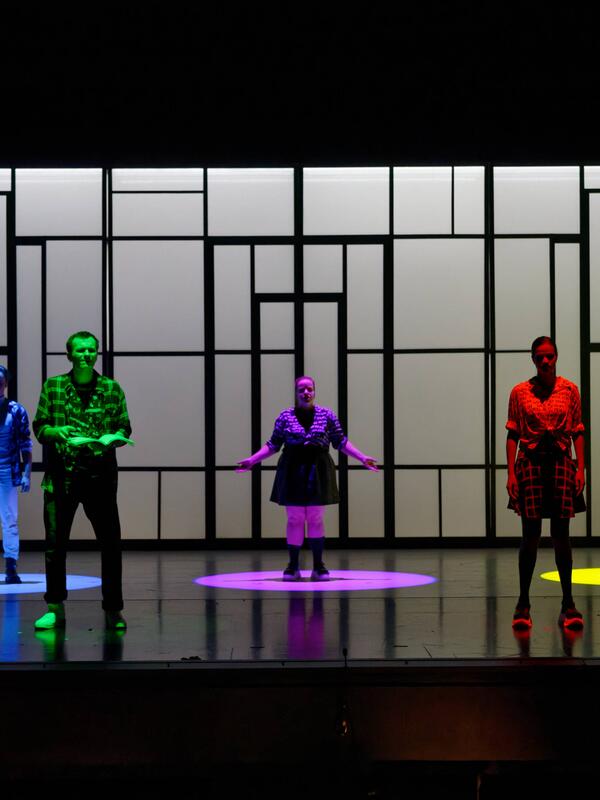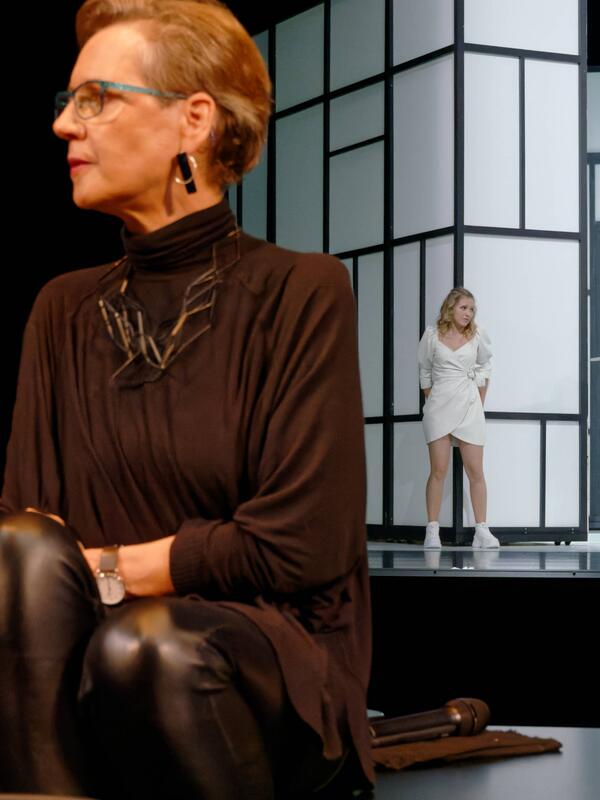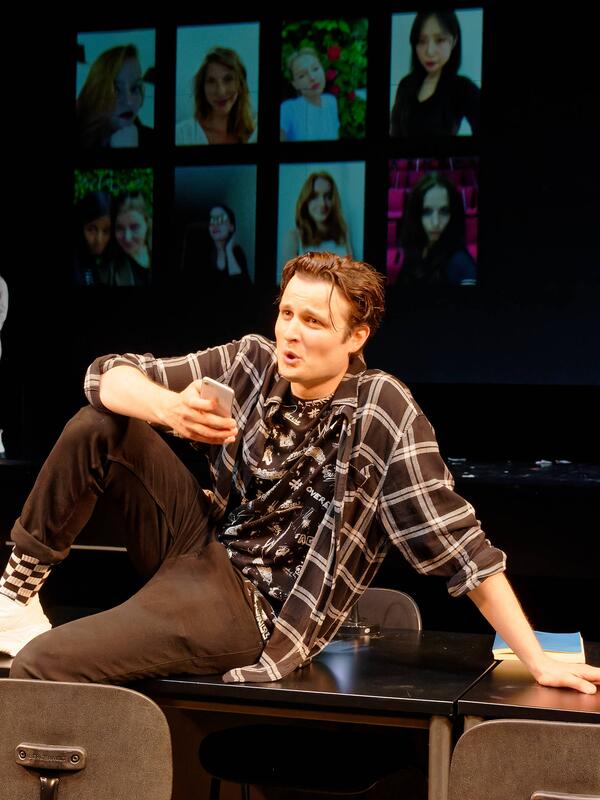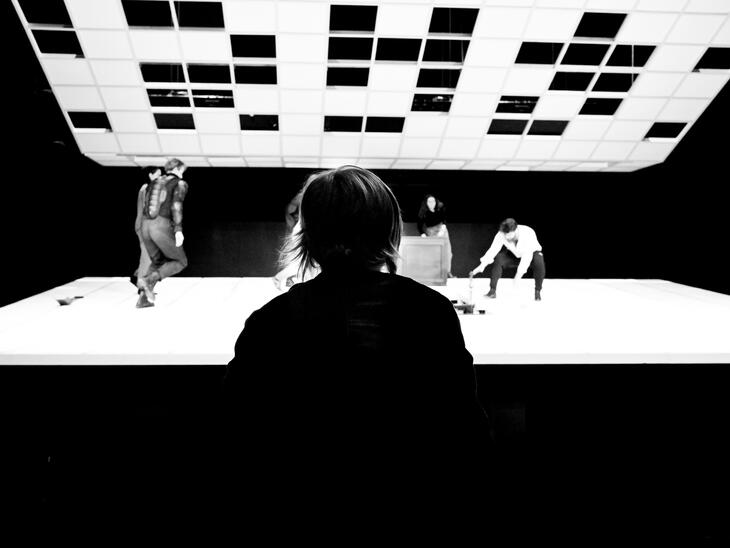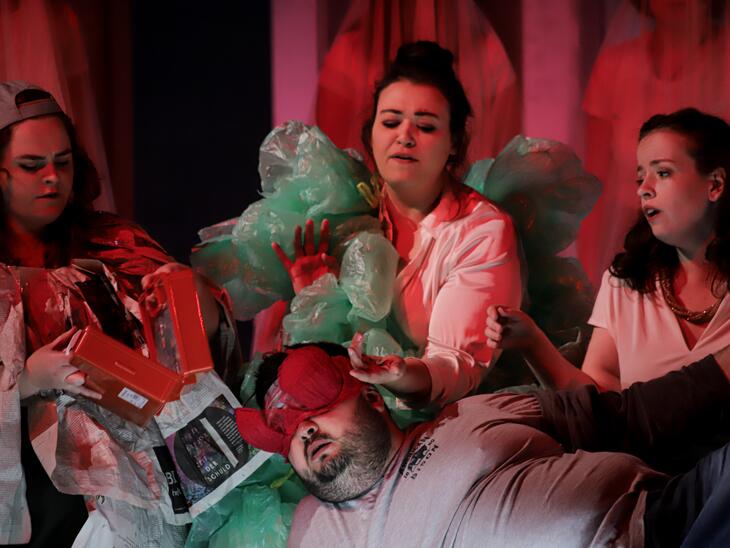Through the Magic Flute to oneself
Alexandra Szemerédy & Magdolna Parditka talk about their production
( Interview: Christian Arseni) "Where am I?" In your production, the answer to the first spoken words that Schikaneder puts into Tamino's mouth in "The Magic Flute" is not: in the realm of the Queen of the Night, but: at a "Magic Flute" rehearsal. How did the decision come about to invent this new frame story and to largely dispense with the original dialogues? Alexandra Szemerédy: Where am I? Who am I? Where do I want to go? Who do I want to be? - These are questions of becoming self-aware, an awakening of one's own self. It is about determining one's own position in the coordinate system, about a kind of self-measurement. In order to be able to start an "inner journey", this self-questioning is indispensable: It marks the path that leads from the state of external determination to self-determination. In our interpretation, it is not only Tamino who is forced to ask himself these questions - the same is true for Pamina and, by extension, for everyone. Magdolna Parditka: Yes, we are rehearsing the "Magic Flute," and at the same time we are all, as participants, being put to the test. Our starting point was to focus the production not only on the work itself, but in particular on the work on the work, to bring the musical theater reality that we ourselves experience onto the stage. We show exactly what normally remains hidden behind the scenes, turn the seams inside out, so to speak, and thus allow the audience to gain an insight into the process of creating a production. The backstage atmosphere makes it possible to be there live when the "magic" happens, but at the same time it also demonstrates the arduous path to get there. AS: For our parallel narrative, we created new texts that correspond on different levels with Schikaneder's original. The situations we created are in constant interaction with the "Magic Flute" material: dialogues that seem as if they were created out of the moment are juxtaposed with deliberate quotations from the original. These two narrative levels are interdependent and intermingle, the boundaries between play and reality gradually disappear. The young main characters of "The Magic Flute" go through a process from which they emerge as more mature, mature people. Do the fictional performers who embody these roles in your production have comparable experiences? MP: Yes, here, too, it's a matter of interaction: we experience the performers working on a "Magic Flute" performance and observe how the work itself influences them and changes them. The question is: Am I shaping the role or am I being shaped by the role? AS: Our goal is to bring about a kind of fusion. The fictional performers are drawn more and more into the "Magic Flute" story, and at the same time the "Magic Flute" characters are confronted with situations that are motivated by the reality of the performers. These border crossings eventually lead to a new reality in which the plot of the opera and the parallel world of the performers mysteriously intermingle. The two powerful parental figures of "The Magic Flute," the Queen of the Night and Sarastro, appear as opposites, at least from each other's perspective. How important are these polarities, the night-light symbolism for you? What role does the older generation play, especially the added character of the director? MP: The opposites of perspectives appear in our production in the form of the forces of music and scene working against or with each other. In a certain sense, the performers become the playthings of these two powers. And indeed, musical theater is that art form which exists precisely out of the interaction of these polarities. Pamina's and Tamino's task is to use what they have learned for themselves, but then to free themselves from the "powerful parental figures" and find their own way - although it is not said that they will walk this path together forever. AS: The fictional director, Frau Stern, is another manifestation of the Queen of the Night, much like the conductor, Herr Sonnig, is a projection of Sarastro. Through these two figures, the duality of two principles inherent in the play becomes even more tangible. The figure of the director at the same time reflects our own examination of the work: she is the eye from the outside, she acts as a catalyst for the questioning of the self and the work. The men's association of the "initiates" shows misogynistic tendencies, and the fact that Pamina takes part in the final examinations, even becoming Tamino's guide, was certainly not intended by Sarastro. What significance does the character of Pamina have for you? AS: From a psychological point of view, Pamina is the most exciting character: she is caught in the crossfire of conflicting expectations, and at some point the pressure becomes unbearable for her and results in self-injurious behavior. The actress portraying Pamina gets caught in a dark in-between realm between reality and fiction, from which she has to find her way out: an extreme "test" that perhaps demands more inner strength from her than from anyone else. MP: It was very important to us to show all the performers and their roles as characterized by ambivalence - to make it clear that they all move between the abstract poles of "night" and "sun," and not to bend their character traits clichédly in a single direction. Especially in "The Magic Flute," it is necessary to rethink traditional gender role models as well, so that the focus is not on "man" and "woman" but on being human.
